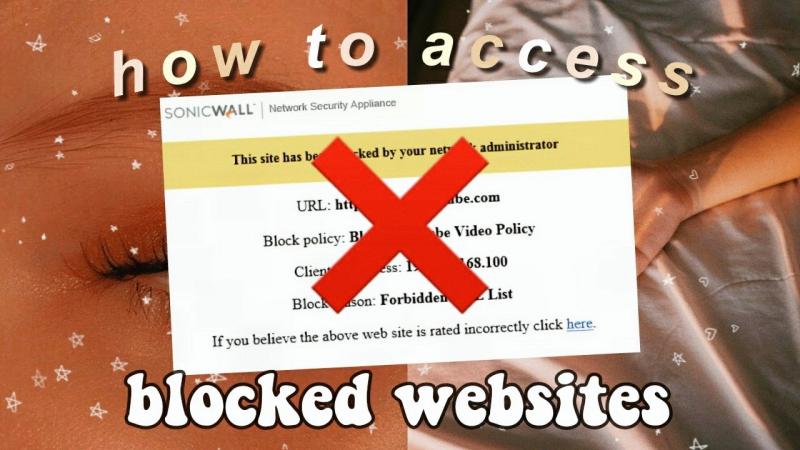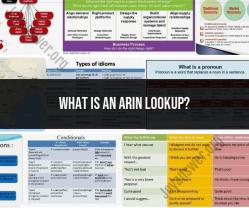How to unblock and access a blocked website?
Accessing blocked websites may be against the terms of service of certain networks or even illegal in some regions. Always ensure that you are acting within the bounds of the law and adhering to the rules of the network you are using. Here are some general methods that people may use to try to access blocked websites:
Use a VPN (Virtual Private Network):
- A VPN can help you access blocked websites by encrypting your internet connection and tunneling it through a server located in a different region. This can mask your IP address and make it appear as though you're accessing the internet from a different location.
Proxy Servers:
- Proxy servers act as intermediaries between your device and the website you're trying to access. They can help bypass restrictions by masking your IP address. Be cautious when using free proxies, as they may have limitations and security risks.
Tor Browser:
- The Tor Browser allows for anonymous browsing by routing your internet traffic through a series of volunteer-operated servers. This can help you access blocked websites, but it may slow down your connection.
Browser Extensions:
- There are browser extensions designed to unblock websites. However, be careful with their use, as they may compromise your privacy and security.
Mobile Data or Different Network:
- If a website is blocked on a particular Wi-Fi network, you can try using mobile data or a different Wi-Fi network to access it.
DNS Server Change:
- You can try changing your DNS server to bypass certain types of website blocks. Google's Public DNS and OpenDNS are popular alternatives.
Use a Different Browser:
- Sometimes, websites are blocked on specific browsers. Trying a different browser may help you access the blocked content.
Access via IP Address:
- Instead of using the website's domain name, try accessing it directly via its IP address. This method may work in some cases.
Google Translate or Cached Pages:
- Using Google Translate to view a website or accessing a cached version of the page might help you bypass certain restrictions.
Contact the Network Administrator:
- If you're trying to access a blocked website on a corporate or educational network, consider contacting the network administrator for assistance or clarification on the website policy.
It's crucial to note that attempting to access blocked websites may have legal and ethical implications. Always adhere to the rules and regulations governing internet usage in your region and on the specific network you are using. Additionally, consider the potential risks to your privacy and security when using methods like proxies or VPNs.
What are effective strategies to bypass website blocks and gain access to restricted content?
While bypassing website blocks and accessing restricted content can be useful, it's important to ensure your methods are both safe and legal. Here are some effective strategies:
1. Virtual Private Networks (VPNs):
- Most effective and comprehensive method: Encrypts your internet traffic and routes it through a remote server, effectively masking your IP address and location.
- Provides access to geo-restricted content and websites.
- Choose a reputable VPN service with strong security features, fast speeds, and a no-logging policy.
2. Proxy Servers:
- Serve as intermediaries between your computer and the internet: Route your traffic through their servers, changing your IP address and potentially bypassing website blocks.
- Free and paid options available: Free proxies can be unreliable and insecure, while paid proxies offer better performance and privacy.
- Consider the proxy's location, speed, and security features when choosing one.
3. Tor Browser:
- Free browser designed for anonymity and privacy: Routes your traffic through a network of volunteer nodes, making it difficult to track your online activity.
- Can be slower than VPNs or proxy servers.
- Ideal for accessing general blocked content and protecting your privacy.
4. IP Address Lookup and Direct Access:
- Websites sometimes block IP address ranges instead of specific addresses.
- Use websites like "WhatIsMyIPAddress.com" to find your IP address.
- Check if directly entering the website's IP address bypasses the block.
5. Web Archives and Cached Pages:
- Websites like the Wayback Machine (archive.org) store archived versions of web pages.
- Access cached versions of blocked content if they are available.
- Useful for accessing historical information or temporary content.
6. Content Delivery Networks (CDNs):
- Some websites use CDNs to deliver content from geographically distributed servers.
- Try accessing the website directly through the CDN link, which might bypass region blocks.
- This method requires some technical knowledge and may not always work.
Additional Tips:
- Always use legal and ethical methods to access content.
- Be cautious of free VPNs and proxy servers, as they can be unreliable or even malicious.
- Research the reputation of any service you use before providing personal information.
- Ensure your chosen method is compatible with your device and operating system.
- Remember that bypassing website blocks might violate the terms of service of certain websites.
By employing these strategies and exercising caution, you can increase your chances of accessing restricted content. However, it's important to prioritize safety and legality while navigating online restrictions.








